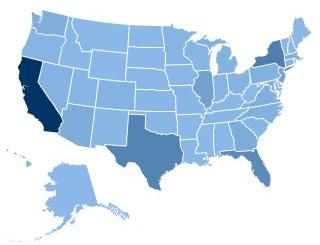Published on Fri, Apr 01, 2011
It's a story repeated throughout American culture, in theatre, film and novels: the penniless immigrant arrives on American shores seeking a new life and, through hard work and determination, prospers and thrives.
Such tales are a quintessential part of the "American Dream", the idea that anyone willing to work hard and think big can come to the US and "make it".
But, at a time when immigration is a divisive, hot-button political issue, is that dream still possible?
The dream itself is alive and well, says Ben Johnson, the executive director of the American Immigration Council.
"The spirit of the people who have the drive to uproot themselves and pursue this dream across the world is powerful. It continues to shine through," Mr Johnson told the BBC.
But the spirit is not sufficient if the system won't allow it. And America's immigration system does not make it particularly easy to start a new life on its shores.
Quotas reached
American immigration policy is largely family based, meaning residency is most commonly granted to the immediate family of existing residents or citizens.
For others, visas are granted mostly based on skill levels, with highly skilled immigrants having a much easier time getting work permits than unskilled labourers.
So-called skilled workers - usually people with a university education or professional training - have a range of visa options. The most common visa, the H1B class, currently has a ceiling of 65,000 each year.
That quota is easily filled every year. Before the recession, it was filled in the same month the visas were released.
At the moment, Mr Johnson says, it gets filled in eight or nine months, meaning that for several months of the year, H1B visas simply are not available regardless of the demand for them.
For unskilled labourers, the US grants just 5,000 work visas each year to people employed in fields other than agriculture.Read more...
Published in the BBC News



